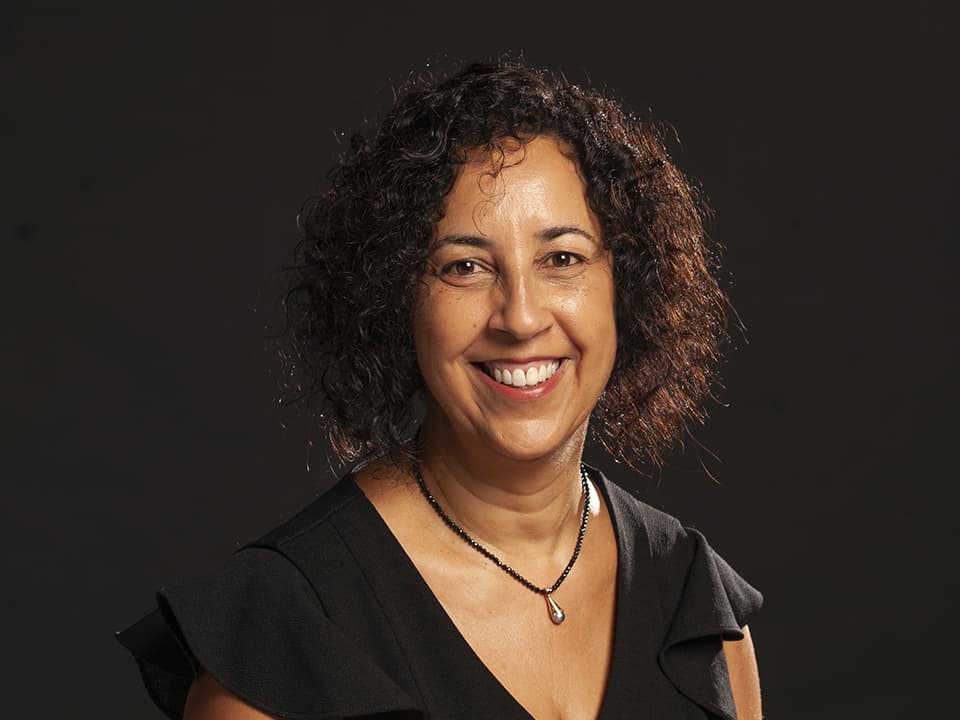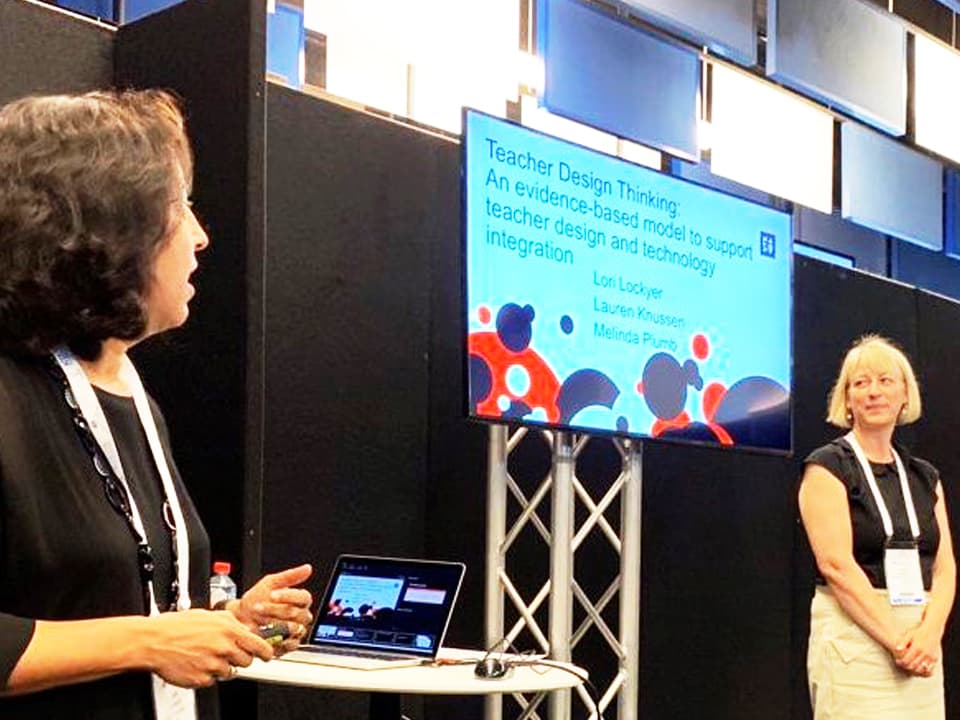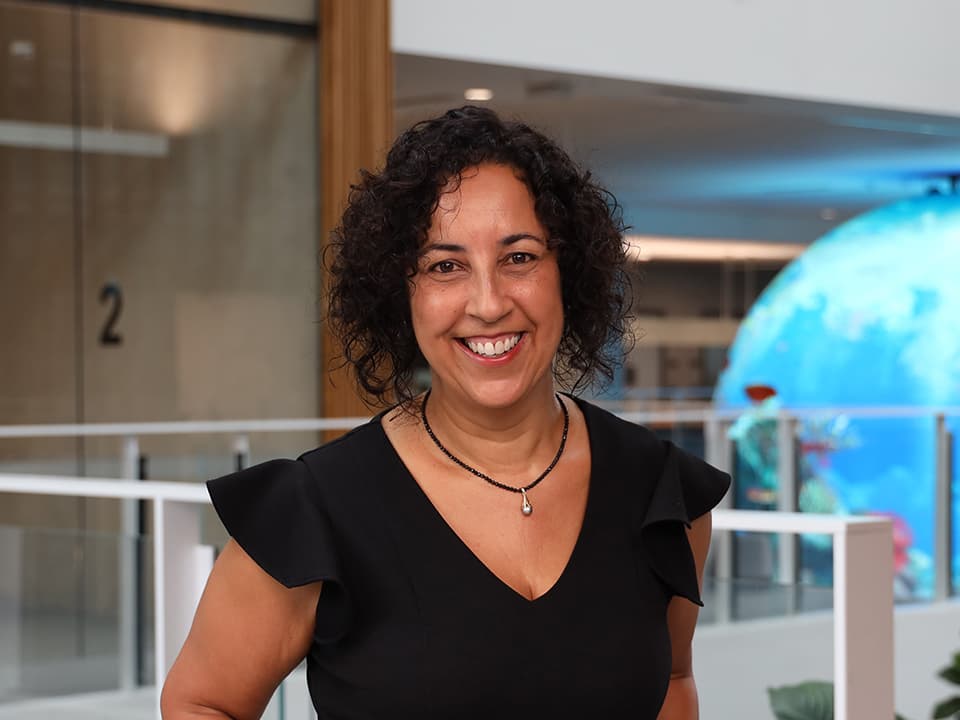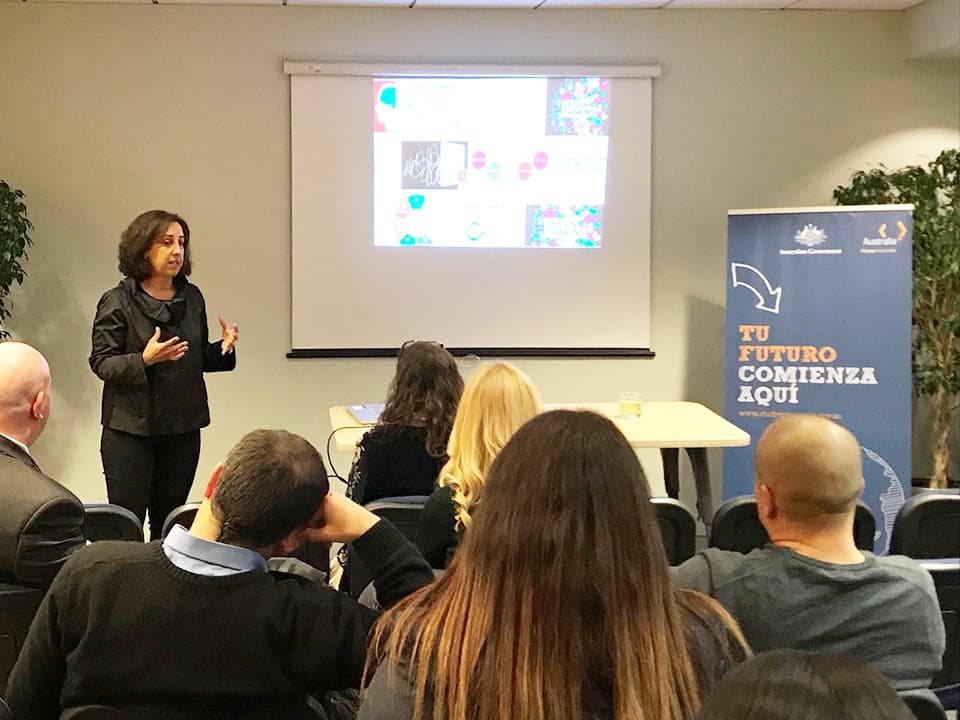'By harnessing technology effectively and equitably in education, we can create the conditions to positively enable learners and help them reach their learning potential.'


The spark
‘I was always interested to use technology in my own learning at school. This will date me but, I loved programming in BASIC in high school and was excited about the possibilities of the Internet with the release of the Mosaic web browser when I was doing my Master of Library and Information Science.’
Research aim
‘My research aims to understand how technology can be used to support learning. This means investigating how teachers design learning experiences for their students and how students engage with technology to support their learning process and outcomes.’
Real-world implications
‘Teachers have an enormous impact on student learning potential. By understanding the influences and approaches in developing learning experiences, we can support teachers and students through training, interventions, strategies and tools.’

The challenge
‘The pandemic has highlighted how technology can support learning, but also how it can entrench inequality to education access and limit pedagogical potential when teachers are not supported with the right resources and development. Learning from the positives and negatives of the pandemic experience is a great challenge and opportunity for the next five years.’

Contributing to QUT Research
‘As an Executive Dean, it is important to me that our researchers are supported to develop, explore, collaborate, and engage in meaningful, excellent research. This means helping to attract great researchers to work at and with QUT, understanding how we can best resource our research, and supporting our researchers to connect with community and industry partners.’
Building QUT's reputation through research
‘Universities have a fundamental role in creating new knowledge. A continued commitment to engaging in the highest quality research that both allows for ‘blue sky’ thinking and solving challenges that we see in our communities and society will cement QUT’s reputation for being a real-world university.’


Teaching
‘I get immense satisfaction in helping develop the next generation of researchers. I have had wonderful opportunities to, not only supervise my own HDR students, but also to teach, mentor and develop programs for cohorts of HDR students across a whole faculty and university. I’m continually amazed and energised by the enthusiasm, knowledge and skills sets of our HDR students. The career possibilities for HDR graduates, in both industry and academia, are more diverse now than they ever have been.’
Key publications
Bennett, S., Lockyer, L., & Agostinho, S. (2018). Towards sustainable technology‐enhanced innovation in higher education: Advancing learning design by understanding and supporting teacher design practice. British Journal of Educational Technology, 49(6), 1014-1026.
Lockyer, L., Heathcote, E., & Dawson, S. (2013). Informing pedagogical action: Aligning learning analytics with learning design. American Behavioral Scientist, 57(10), 1439-1459.
Lockyer, L., Patterson, J., & Harper, B. (2001). ICT in higher education: Evaluating outcomes for health education. Journal of Computer Assisted Learning, 17(3), 275-283.


